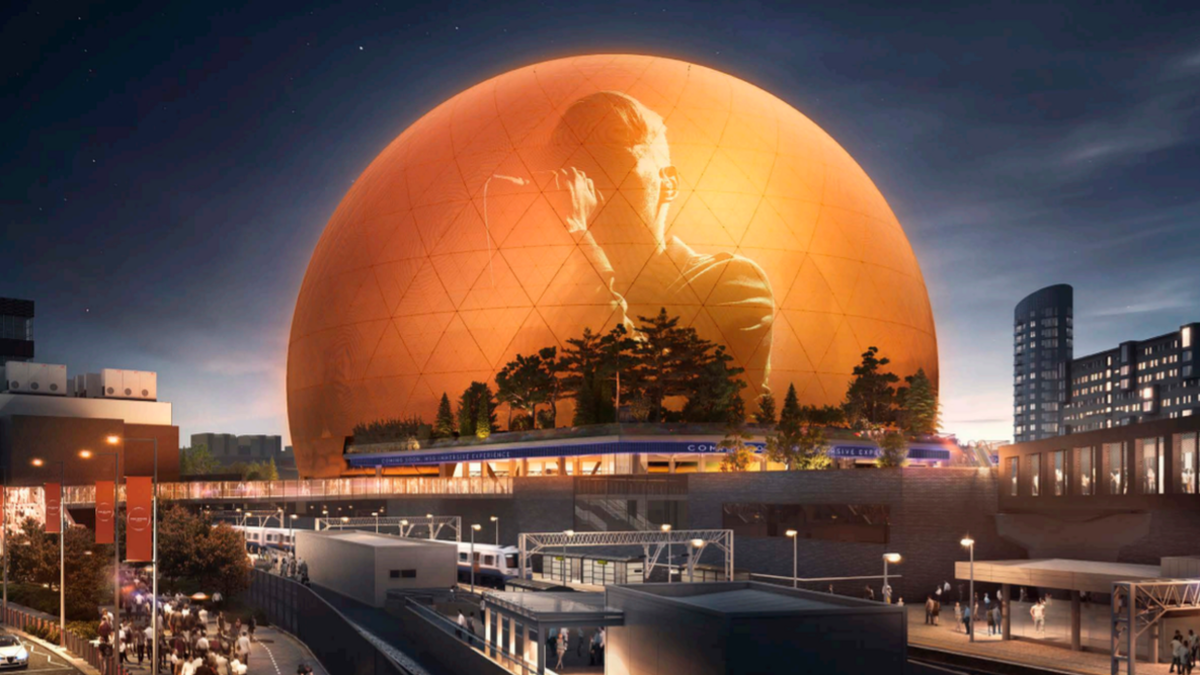Stratford sphere proposals rejected by London mayor
- Published
- comments
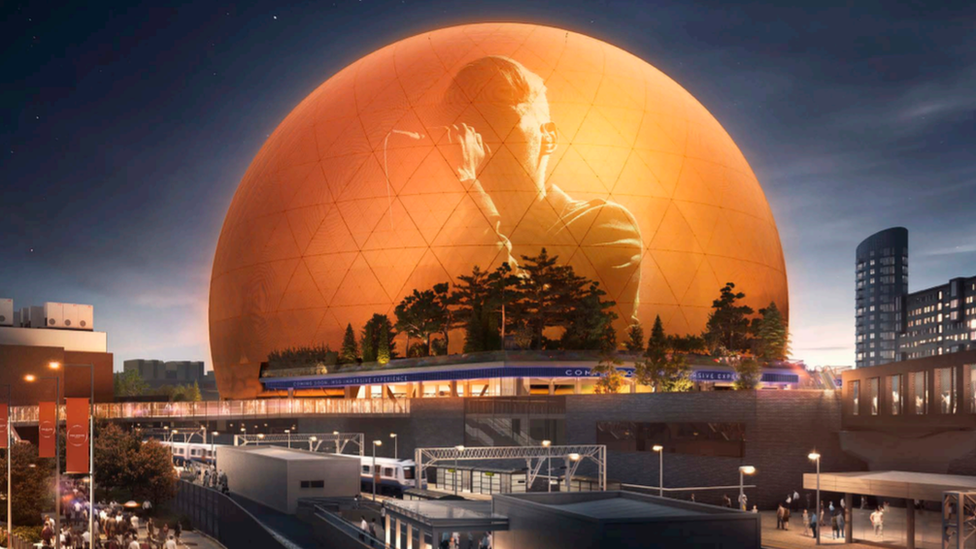
The exterior of the "Sphere" would show adverts and visual displays, which locals say will stop them sleeping
Plans for a Las Vegas-style "Sphere" entertainment venue on the edge of the Olympic park in east London have been rejected by the mayor.
Sadiq Khan decided on Monday to block the giant eyeball-shaped dome proposed by Madison Square Garden Entertainment Company (MSG) on three key grounds, including light pollution.
The company said it was "disappointed in London's decision".
The final decision will go to Communities Secretary, Michael Gove.
Mr Khan rejected the development, citing the amount of light pollution that it would cause for Stratford residents, its huge electricity bill and associated lack of "green" credentials, and the impact it would have on heritage sites in the area.
A spokesperson for the mayor said: "London is open to investment from around the world and Sadiq wants to see more world-class, ambitious, innovative entertainment venues in our city.
"But as part of looking at the planning application for the MSG Sphere, the mayor has seen independent evidence that shows the current proposals would result in an unacceptable negative impact on local residents."
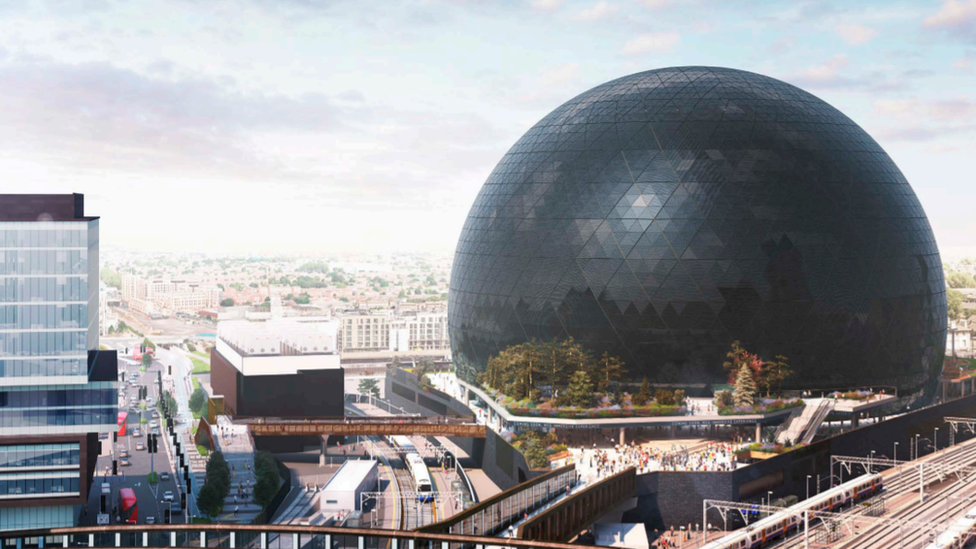
City Hall officers said the dome at Queen Elizabeth Olympic Park would be a "detriment" to health
The Sphere, designed by architect Populous, would be a copy of the Madison Square Garden Sphere in Las Vegas, a $2bn (£1.6bn) arena which played host to U2 last month.
The London Sphere would be covered in LED panels and would stand almost 100m (300ft) high and 120m (360ft) wide. It would be built immediately to the east of the Olympic park.
The Sphere's main auditorium would have a 21,500 capacity.
'Detriment to health'
The detailed decision from City Hall showed Mr Khan, who is able to intervene in large planning applications, accepted officers' concerns about "significant light intrusion resulting in significant harm" to neighbouring properties.
There had been reports of residents having to fit blackout blinds to avoid the glare.
The City Hall documents also revealed the Sphere was considered a "detriment to human health" and causing "significant harm" to "hundreds" of Stratford residents in their own homes.
Greater London Authority officers had commissioned an independent expert review of the applicant's environmental statement in order to assess the concerns about light pollution.
The experts, WSP, "identified significant errors and omissions" in the applicant's assessment, according to City Hall.
This included not undertaking the measurements correctly and in line with UK guidance.
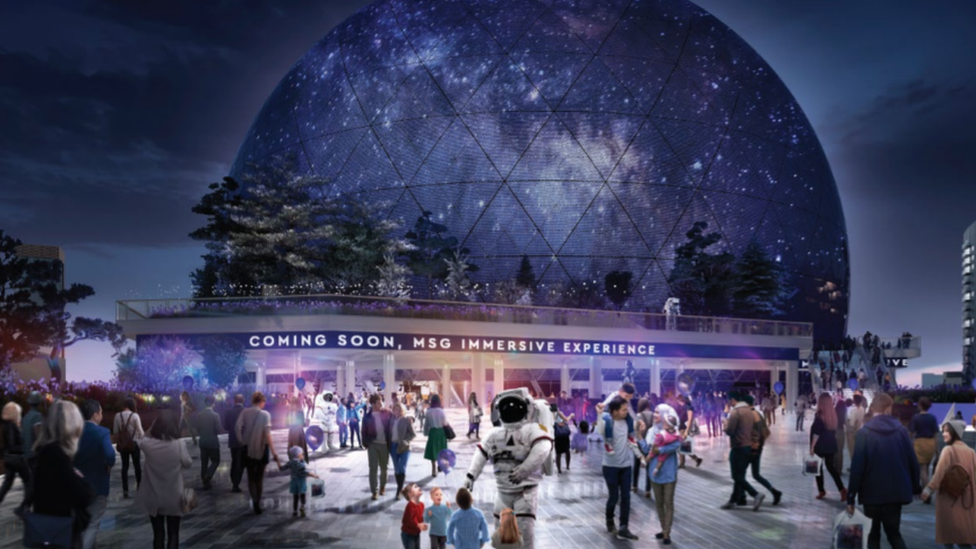
The London Legacy Development Committee (LLDC) previously backed the plans as a popular tourist attraction
City Hall said: "WSP concluded that the Illuminated Sphere, in conjunction with other artificial lighting within the proposed development… would be likely to have significant adverse effects on occupiers of nearby residential premises."
This included at least 33 homes in the New Garden Quarter residential development; 28 homes in the Legacy Tower/Stratford Central; and 177 student rooms in the Unite student accommodation building.
The size of the Sphere would make it a "bulky, unduly dominant and incongruous form of development" and cause harm to the setting of 16 heritage buildings, including the Grade II* listed Stratford Theatre Royal and three conservation areas.
The London Legacy Development Corporation, which first determines planning applications in the Olympic park, gave its approval in March last year.
Mr Gove had already issued an "Article 31 direction", informing the LLDC that he was considering whether to call in the plans - effectively giving him the final say on whether it is granted planning permission.
A Sphere Entertainment spokesperson said: "While we are disappointed in London's decision, there are many forward-thinking cities that are eager to bring this technology to their communities. We will concentrate on those."

Follow BBC London on Facebook, external, Twitter , externaland Instagram, external. Send your story ideas to hellobbclondon@bbc.co.uk, external
Related topics
- Published10 October 2023
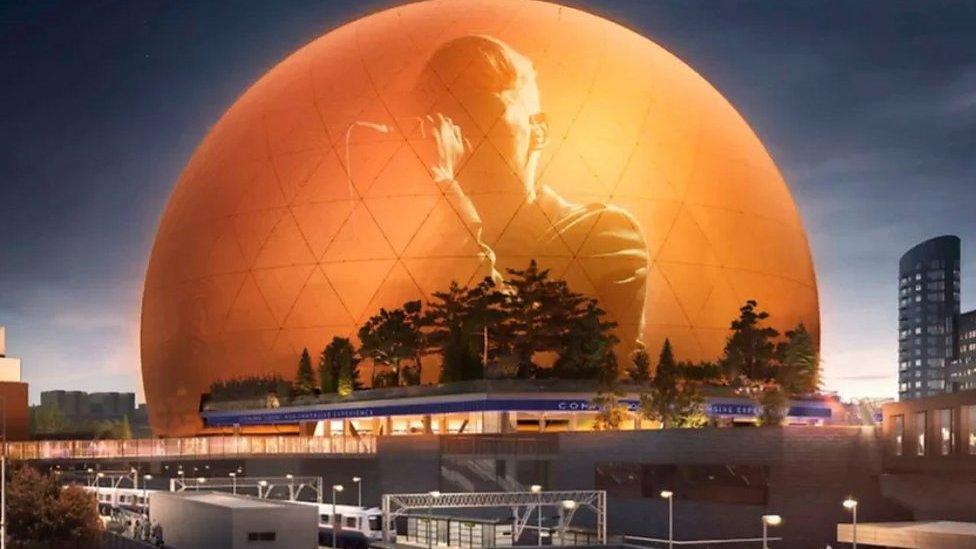
- Published25 March 2022
